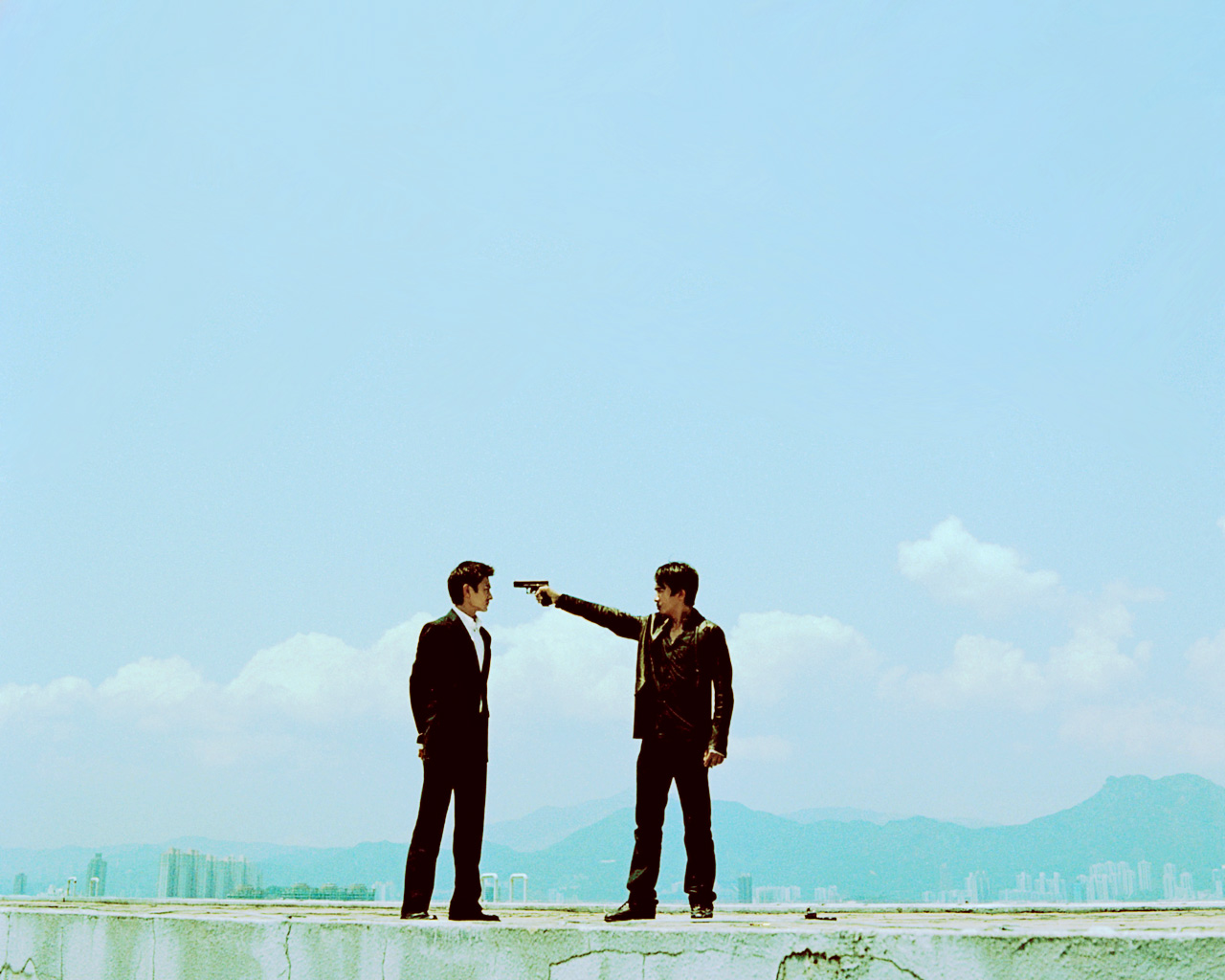Text examined:
- Infernal Affairs (2002) [无间道]
One of the most influential films of
post-colonial Hong Kong cinema and undoubtedly my favourite film of Asian
Cinema is Andrew Lau and Alan Mak’s Infernal
Affairs (2002). I’d be kicking
myself if I didn’t post about this film for this blog.
I never knew this film existed until a
friend suggested it to me a while ago. I had already seen Martin Scorsese’s The Departed, which was a remake of this
2002 Hong Kong crime-action thriller. I liked Infernal Affairs much better than The Departed, which funnily enough, received many accolades
including winning the Best Picture award at the 79th Academy Awards.
 |
| Which one is the cop? |
Infernal Affairs is heralded as a classic of Hong Kong cinema and with reason too. The plot? Essentially, it’s a tale of two individuals, both with dual identities, trying to uncover the identity of the other. One is a mole in the police force. The other is a mole in the Triads. The Acting? Absolutely sensational. The two main characters are played by two kings of Hong Kong cinema: Andy Lau and Tony Leung, who both give compelling and captivating performances in their respective roles. The Music? Captures the mood so well – some tracks are even worthy of a cheeky download. The ending just leaves you gobsmacked and wanting to know what happens next – which is why you will want to watch the rest of the trilogy to find out.
Not only is it a great film to watch, it is
also able to comment on societal issues that constantly confront Hong Kong as a
Special Administrative Region of China. The Hong Kong film plays on the question of
identity at a time when the identity of Hong Kong itself was a contentious
issue – and it still is. Though Hong
Kong has been handed over to the Chinese communist rule, its systems are
unchanged until 2047, namely its capitalist economic system. In this sense,
Hong Kong exemplifies the middle ground between China and Britain – hence why
the formation of a separate and distinct culture has been so difficult for Hong
Kong.
Infernal
Affairs shows both moles are stuck in between the
two roles they have to play. Chan, who is an undercover cop, has been in the
Triads for so long that it seems as if he is no longer acting – it is gradually
become his reality. The same can be said about Lau, who is the Triad
infiltrating the police force. The film focuses on the struggle for both
characters to find their true identities, which have become inadvertently
distorted as a result of being undercover for a decade. Therefore, this aspect
of the film can be seen as an explicit allegory to Hong Kong’s situation. It’s
also one of the best parts of the storyline. Once both realize that there is
someone just like them working for the other side, they race to uncover each other’s
identity. It’s almost as if they are chasing their own identities in an
inextricable maze – it’s edge-of-your-seat viewing!
Mainstream critics who have never seen Hong
Kong films like this will praise directors like Martin Scorsese for his
originality. However, I think it marginalizes and doesn’t give merit to great
films such as Infernal Affairs, from
which the American films are influenced by.
Does a film like this need the official recognition and acknowledgement
from the West (like The Departed) in order for it to be a classic? No way.
It’s one of the best films of world cinema and it is a must-watch film for anyone who does this subject.
It’s one of the best films of world cinema and it is a must-watch film for anyone who does this subject.
yet another cheers reading sesh
ReplyDelete